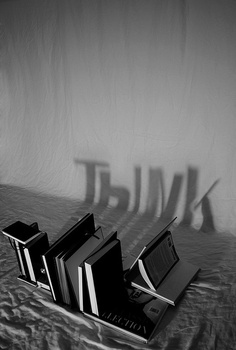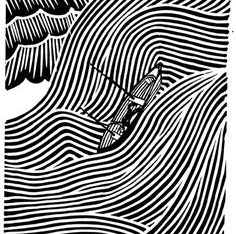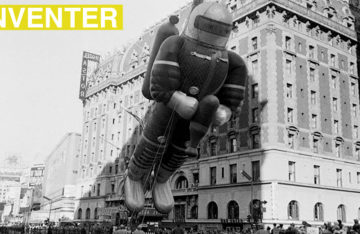 Alain André is a French writer. He has published a dozen books (novels, translations, essays about creative writing teaching, short stories). He is not a professional photographer or multimedia specialist, but uses photography a lot in his work. He is the pedagogical director of the French creative writing school Aleph-Écriture, where he teaches for students (autobiography and novel writing) and teachers.
Alain André is a French writer. He has published a dozen books (novels, translations, essays about creative writing teaching, short stories). He is not a professional photographer or multimedia specialist, but uses photography a lot in his work. He is the pedagogical director of the French creative writing school Aleph-Écriture, where he teaches for students (autobiography and novel writing) and teachers.
Alain ANDRÉ
1. The first EACWP pedagogical conference
EACWP / A European story
As a member of the EACWP board, I’ve been taking part in its Symposiums for some years – 4 years now, I think. From the very start, I was really stricken by the very friendly and productive atmosphere of these meetings.
In those Symposiums, we were able to understand each other, in spite of the English language hurdle race. English is used in our association as a sort of modern Latin, a communication language, and it’s a good point for everybody, even if, especially in Latin countries, it’s a pity to see that 3 of our teachers out of 4 are unable to take part in our works, just because of English, which they don’t speak and sometimes just don’t want to.
By the way, I think we might have another pedagogical conference, one of these years, about the way we use Anglo-American literature, and Anglo-American creative writing manuals, and the English language, in our teaching, in comparison with the way we use contemporary national and European materials… After all, if we are still living in the times of US domination, it’s not forbidden to think about it a little bit!
The conference: a time for pedagogical sharing
This Conference represents a real time for pedagogical sharing. It is focused on creative writing teaching, dedicated to creative writing teachers and searchers. Two previous international conferences were already organized by our EACWP, and I was in Orivesi, Finland, for the last one – but they were conferences about creative writing in general, not really pedagogical ones. We had some pedagogical sharing in our Symposiums, let’s say one day out of the three days they usually last, but we never had enough time to go very far.
I remember I gave a mini-lecture about “how to start with a novel” in Orivesi, a lecture about my “writing, teaching and managing experience” and a workshop about “polyphonic narratives”, in Orivesi again, but they were not comprehensive and global interactive experiences, as the ones we shared here in Paris.
2. How do we teach?
Questions
Well, what can we expect now? During the previous Symposiums, I was particularly interested in our pedagogical sharing. I remember a lecture given by Angel Zapata in Madrid about a Sam Shepard’s short story. I remember a lecture in Vienna by Daniel Soukup about poetry. I remember many others. What fascinated me, I think, is the way Europe opens the landscape of our own French pedagogical debates. I was also stricken by the fact that some questions we’ve been working on here in France for long do not seem to be so important in other countries. Let me give you three examples:
– One. What is the right posture for a creative writing teacher? I mean: is he a teacher or something totally different?
– Two. Is the art of teaching art a specific one, or a simple extension of creative writing art? I mean: do we think students just have to imitate, and especially to imitate their wonderful teachers, which is pure behaviourism, or do we think they have to build their own questions and ways of writing, and how, which is a rather different approach (a constructivist one)? What are the adequate contents?
– Three: do young teachers need a specific initial training? I mean: are they teachers just because they are writers, or not? What happens when they are not published writers yet? What training tools may be used, if training happens to seem necessary, or at least useful?
I’m not expecting answers for these questions. But I’m sure they will lead to new questions. More especially as you have already asked others, as Ana Menéndez did with the statute of reading in creative writing teaching, or Denis Bourgeois with the writer’s training, or Frédérique Anne with the links between creative writing and creative writing teaching – sorry for all the ones I’m forgetting.
A panorama?
But I’m expecting something more: a sort of “état des lieux de l’enseignement de l’écriture créative à visée littéraire en Europe”, as I’d say it in French: I guess I should better say a description, or a panorama of creative writing teaching in Europe, which includes, I do not forget, Great-Britain and the United States… That’s why the future proceedings of this Conference are important. In a few years, they will probably be considered as a starting point for our pedagogical research.




